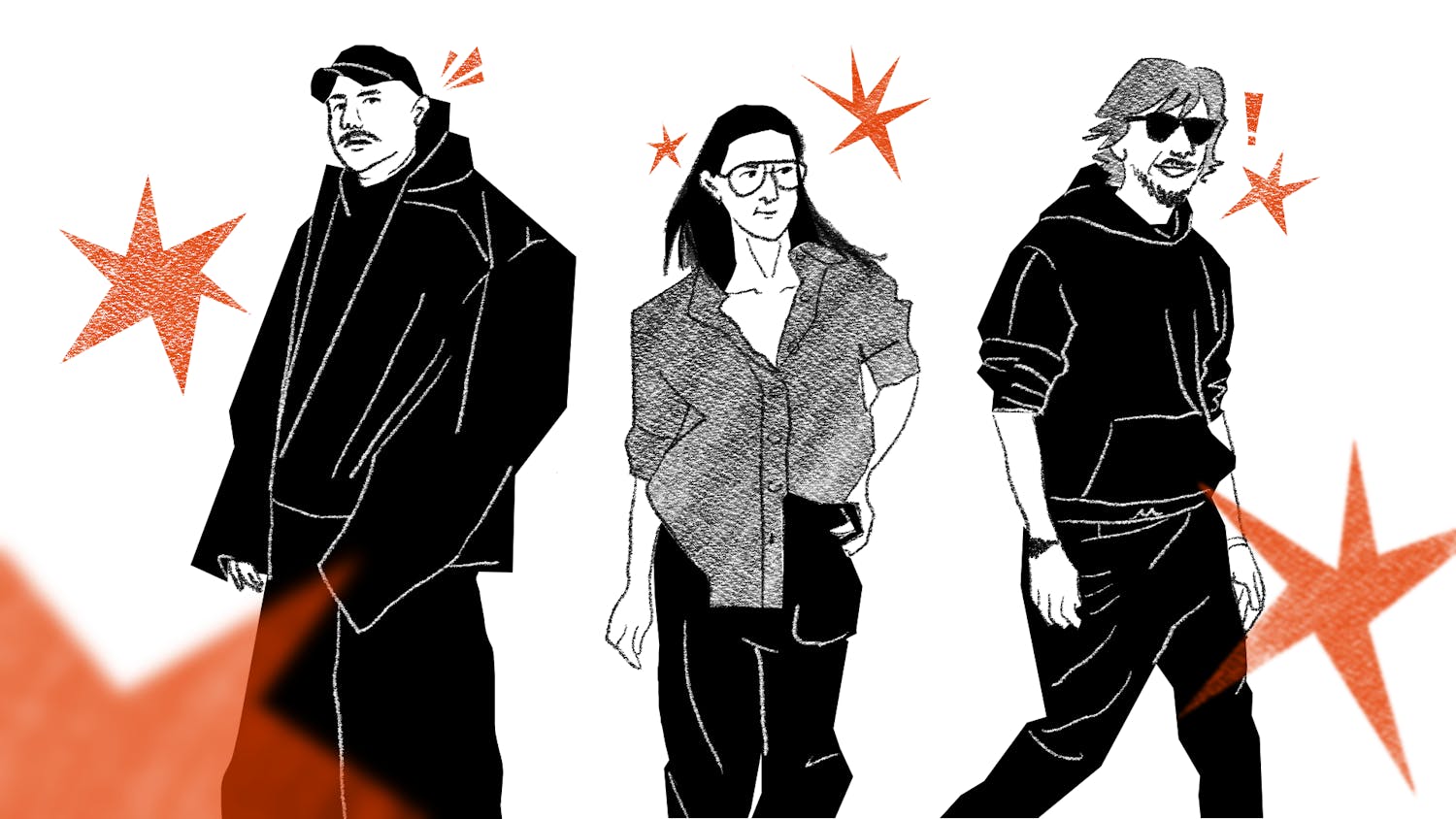When I think of love, I don’t picture myself sitting inside of a classroom. Maybe that’s just me, but my mind goes elsewhere. I imagine my younger brother letting me kiss him on the cheek, slightly leaning into my all–too–forceful hug. I think of couples laughing at each other while doing another dumb TikTok challenge. I hear my friends knocking on my door a little too late at night to see if I want to pick up some frozen yogurt. Love manifests itself in limitless forms.
But what really IS love? How do you even define it? And frankly, who gives a shit?
Turns out, a lot of people do. The curiosity to understand love is a year–round focus, and it doesn’t only find its way onto college campuses around Valentine’s Day.
Assistant professor of Philosophy Sukaina Hirji defines love as “a feeling that involves a desire for intimacy and two–way knowledge: for you to know another person and have another person know you.” Hirji believes that this definition of love will hold true for all different kinds of love: romantic love, platonic love, family love, and the like. “It will look a little bit different in each of those contexts,” she says, but the sentiment rings true.
According to Jean–Michel Rabaté, professor of English and Comparative Literature, love is the sense that you are with someone you want to be with forever. “Maybe it sounds corny, and maybe it sounds kitschy,” he says, but at the end of the day, “love has to be something beyond sex and desire.”
Why should we even care about what love is? Weekends are filled with one too many DFMOs and unanswered text messages. It’s definitely way easier to not care—or at least pretend not to—about love in college.
But it’s nonetheless on everyone’s minds. “It really seems like a human need: that desire for connection, partnership, and community,” Hirji explains. In her course “Philosophical Issues around Love and Sex,” Hirji examines ethical issues that arise when discussing questions about love and sex, largely through a feminist philosophy lens. Every other year, her class fills up with students yearning to satisfy their academic curiosities about that ever–so–feared L word.
“Right now, there’s a lot of reconsideration about what love can look like in a person’s life,” she says. The world has changed a lot. We find ourselves less reliant on the nuclear family structure. Women are in the workplace. “The queer community has had a huge impact on how people are thinking about love,” she continues. There is an increasing interest in conversations around what loving relationships can look like, along with their never–ending variety across the spectrum.
According to Rabaté, love isn’t something that can be calculated. “There is no element of surprise if love is just something you can order on Amazon,” he says with a twinkle in his eyes, throwing his head back in laughter. Rabaté’s course looks at love from a different perspective: the cynical one. “Love in an Age of Cynicism” tackles the way love frightens people today. Real love implies risk. Tinder, Hinge, and Bumble can only go so far. Today, it is easier to reduce love into something it isn’t: the art of seduction.
Rabaté counters this with his close examination of love in literature. “Love first appears in the novel because novels generally show how difficult it is for love to really find a place, given the possibility that [someone’s] social life is regulated by cynicism,” he explains. Since our childhoods, love has been everywhere. Do you remember the first book you read that included a romantic relationship? What about the first rom–com you ever watched?
It’s all too relevant in our lives today, a point to which Hirji attributes the academic interest in love. “I like to teach courses where every student is going to have a kind of point of view or some experience with the material because it can attract a diverse range of students,” she says. “Every student is going to feel empowered to have opinions or engage with the material.” Love is a central part of mainstream media, so nobody is immune to thinking about it. It’s almost impossible to find zero interest in the discipline.
Rabaté also offers an opinion as to why we enroll ourselves in classes exploring love as an academic subject—and it’s not because we finished all of the love–themed movies on our Netflix homepage. “When people are workaholics their whole lives, they suddenly discover the difficulty of interpersonal relationships,” he says. Pursuing love through the academic angle adds another dimension that prevents us from divorcing it from real life concerns and questions.
“Academic life should not just be seen as a parentheses of four years,” Rabaté says. There is, in fact, a way to connect our educational careers to love, an emotion that seems worlds away from the characteristic stress, boredom, and anxiety associated with school. Hirji encourages us to examine our personal love and sex issues from a more critical, deliberate place. “I really encourage people when they’re thinking about love in their own lives to take that kind of philosophical attitude and ask themselves what they’re absorbing from the culture or taking for granted,” she urges.
Love is something of indescribable beauty and value, and it's dangerous to engage in that rationalistic refusal of it when life gets too crazy. “Often, love is a cure,” Rabaté says. “People despair without love."
The pursuit of love—or at the very least, to identify and understand love—is not dying down any time soon. So consider picking up Plato’s Symposium (per both Hirji’s and Rabaté’s recommendations), enroll in a course about love, or read an eye–opening article about it. You may be surprised by what you discover.







